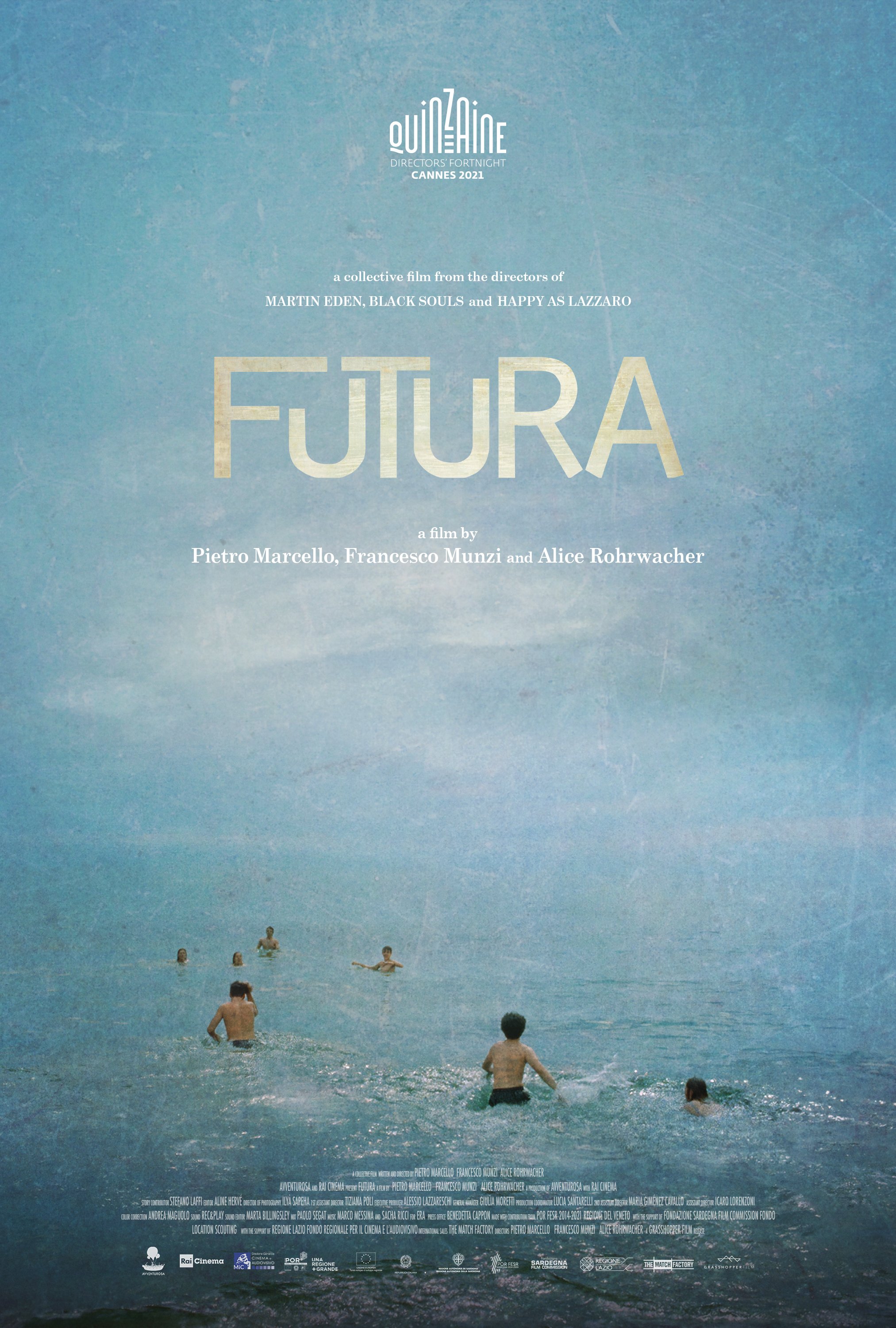
FUTURA
Following in the footsteps of a long line of documentarians, a collective of three Italian filmmakers known for their politically acute cinema—Pietro Marcello (Martin Eden), Francesco Munzi (Black Souls), and Alice Rohrwacher (Happy as Lazzaro)—set out to interview a cross-section of their nation’s youth about their hopes, dreams, and fears for the future. With today’s political divisions, socioeconomic unease, overreliance on technology, and global weather crisis, the conversations they foster feel particularly urgent—these 15- to 20-year-olds together ask the implicit question: is there a future at all? At the same time, the intelligence, expressiveness, and foresight evinced by these teenagers in this moving and masterful film kindles a form of hope in itself.
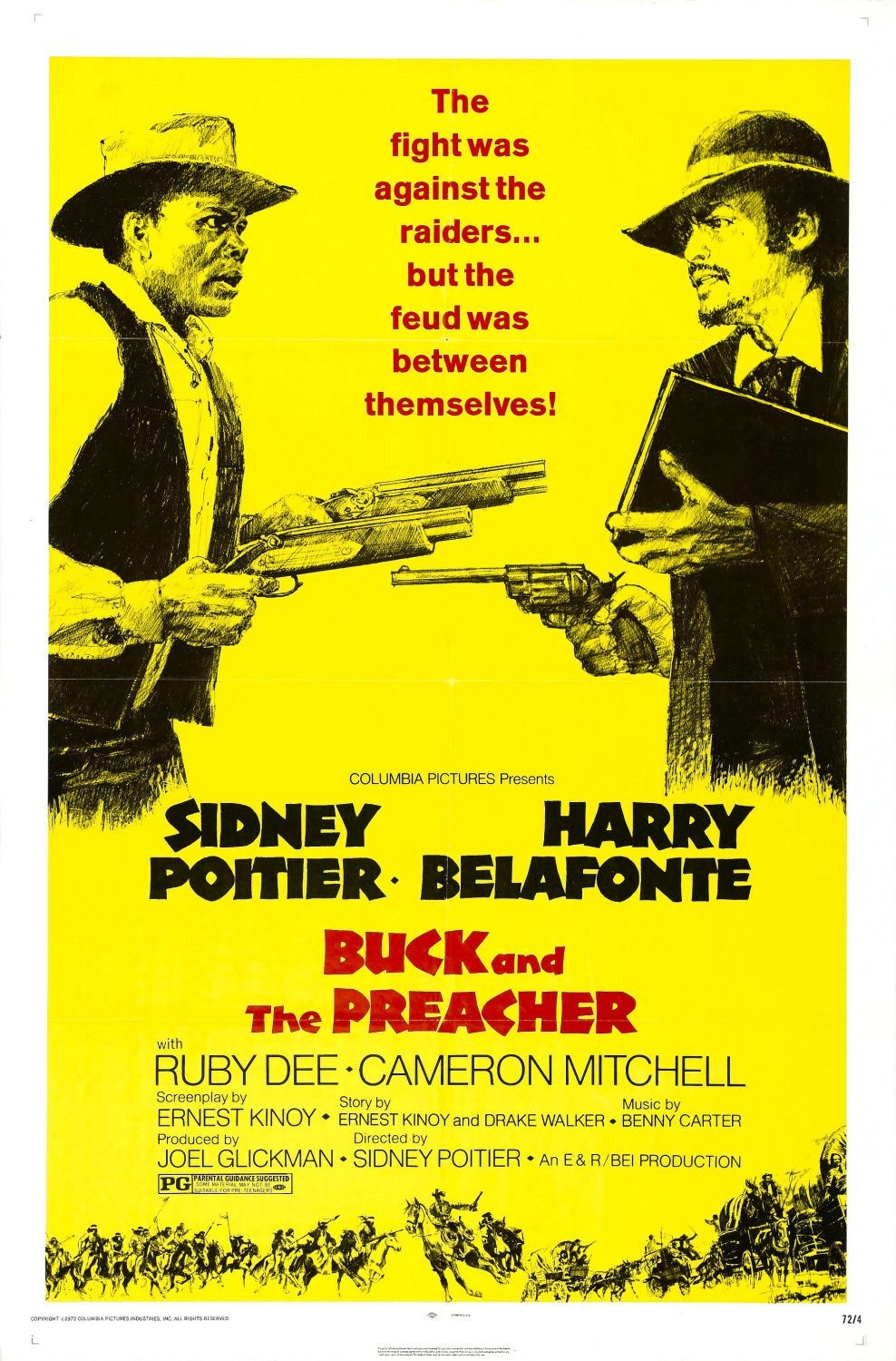
BUCK AND THE PREACHER
Widely regarded at the time of its release as Butch Cassidy and the Sundance Kid with a social conscience, BUCK AND THE PREACHER is an immensely satisfying Western which marked Sidney Poitier's directorial debut, as well as his first screen pairing with superstar Harry Belafonte. Poitier stars as Buck, an ex-Union Army Cavalry sergeant who becomes a scout for freed slaves heading to the Colorado frontier. Tagging along with him are his wife (Ruby Dee in a scene-stealing performance) and a Bible-thumping con artist known as the Preacher (Belafonte). Attacked by racist bounty hunters determined to return the former slaves to a life of sharecropping in Louisiana, Buck and his followers must summon all the courage they have in order to reach their destination and help settle the Wild West.
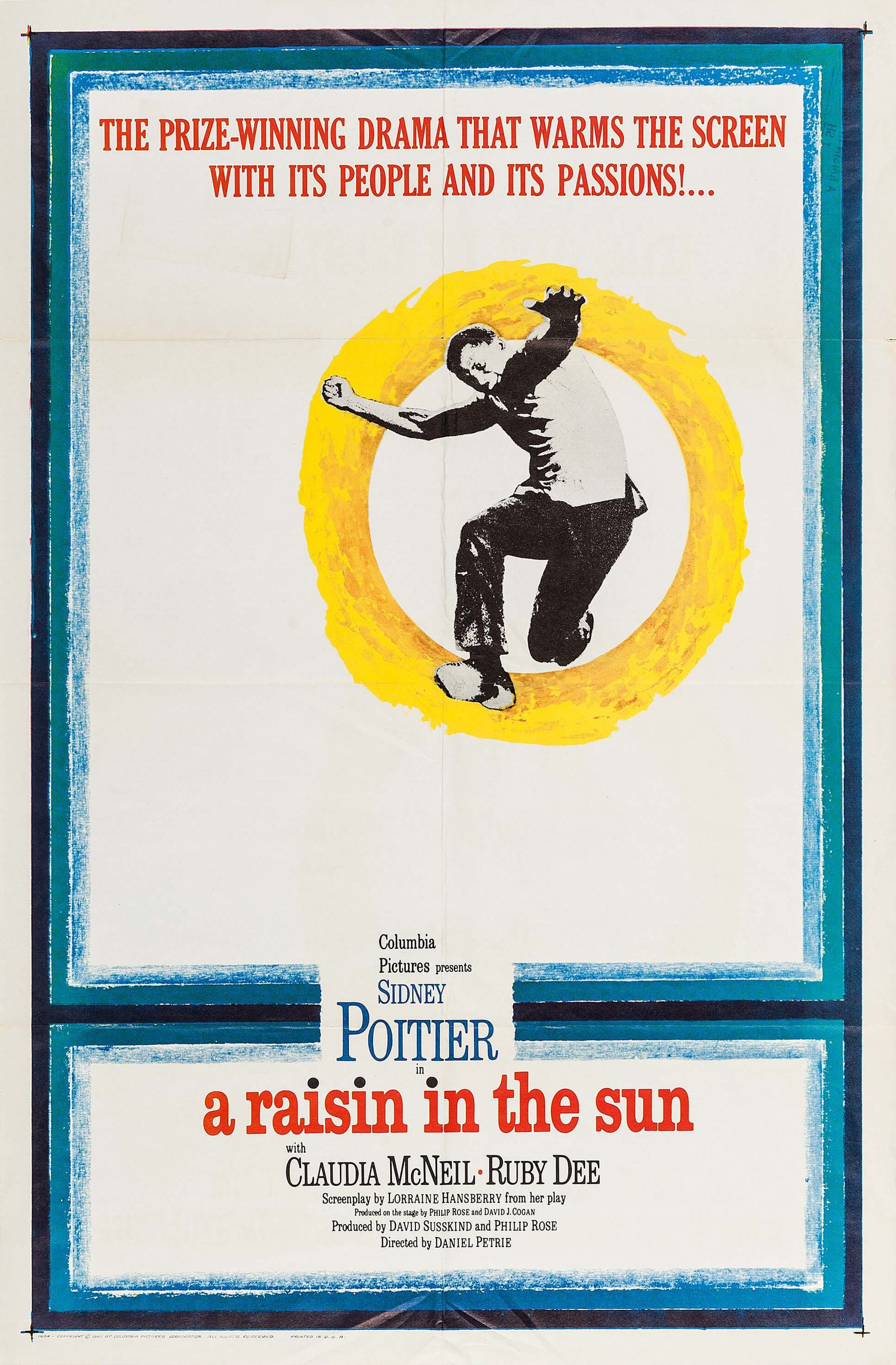
A RAISIN IN THE SUN
A RAISIN IN THE SUN is a groundbreaking drama celebrating the human spirit, featuring an electrifying performance by Academy Award® winner Sidney Poitier (Best Actor, Lilies of the Field, 1963). The Younger family, frustrated with living in their crowded Chicago apartment, sees the arrival of a $10,000 insurance check as the answer to their prayers. Matriarch Lena Younger (Claudia McNeil) promptly puts a down payment on a house in an all-white suburban neighborhood. But the family is divided when Lena entrusts the balance of the money to her mercurial son Walter Lee (Poitier), against the wishes of her daughter (Diana Sands) and daughter-in-law (Ruby Dee). It takes the strength and integrity of this African-American family to battle against generations of prejudice to try to achieve their piece of the American Dream.
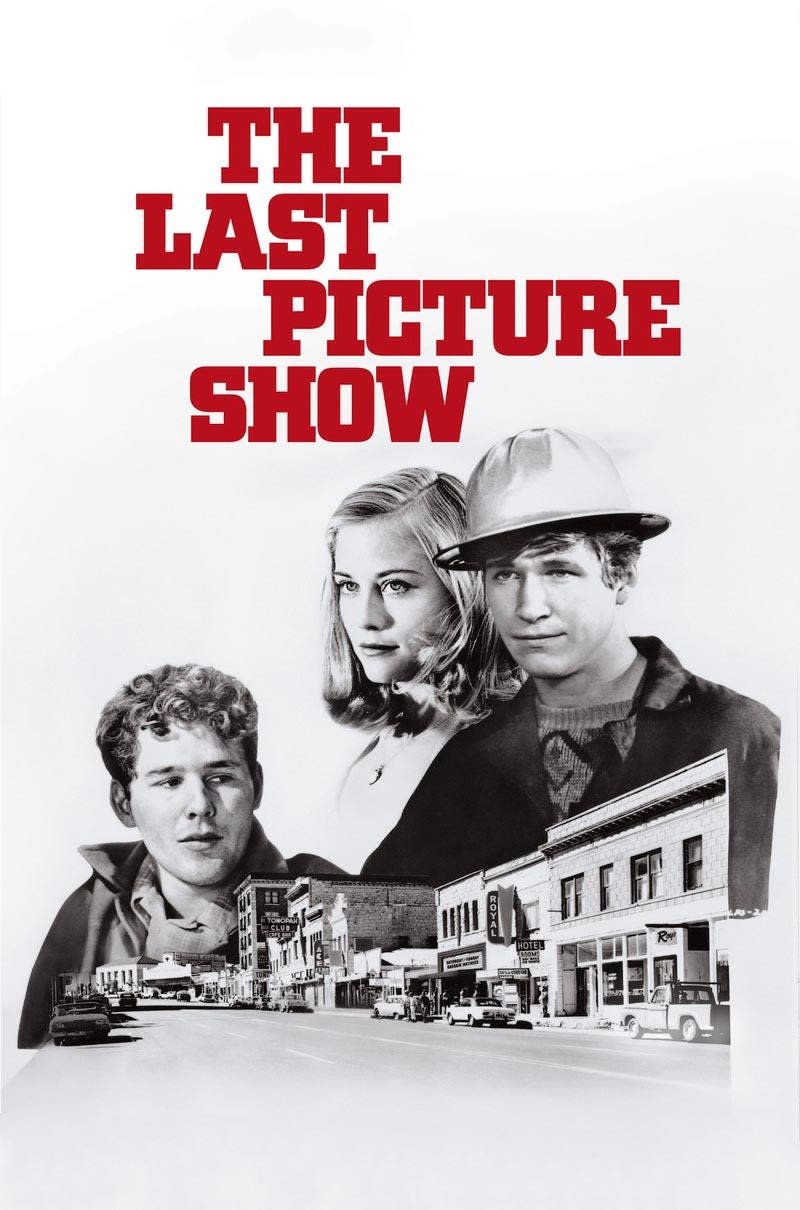
THE LAST PICTURE SHOW
Released in 1971 to critical acclaim and public controversy, The Last Picture Show garnered eight Academy Award nominations and was hailed as the most important work by a young American director since Citizen Kane. A surprisingly frank, bittersweet drama of social and sexual mores in small-town Texas, the film features a talent-laden cast led by Jeff Bridges (The Mirror Has Two Faces), Cybill Sheperd (TV's "Cybill") and Timothy Bottoms (The Man in the Iron Mask). Cloris Leachman (TV's "The Mary Tyler Moore Show") and Ben Johnson (Rio Grande each won Oscars for their work in supporting roles.

JOSEP
February 1939. Spanish republicans are fleeing Franco’s dictatorship to France. The French government built concentration camps, confining the refugees, where they barely have access to hygiene, water and food. In one of these camps, separated by barbed wire, two men will become friends. One is a guard, the other is Josep Bartoli (Barcelona 1910 – NYC 1995), an illustrator who fights against Franco’s regime.
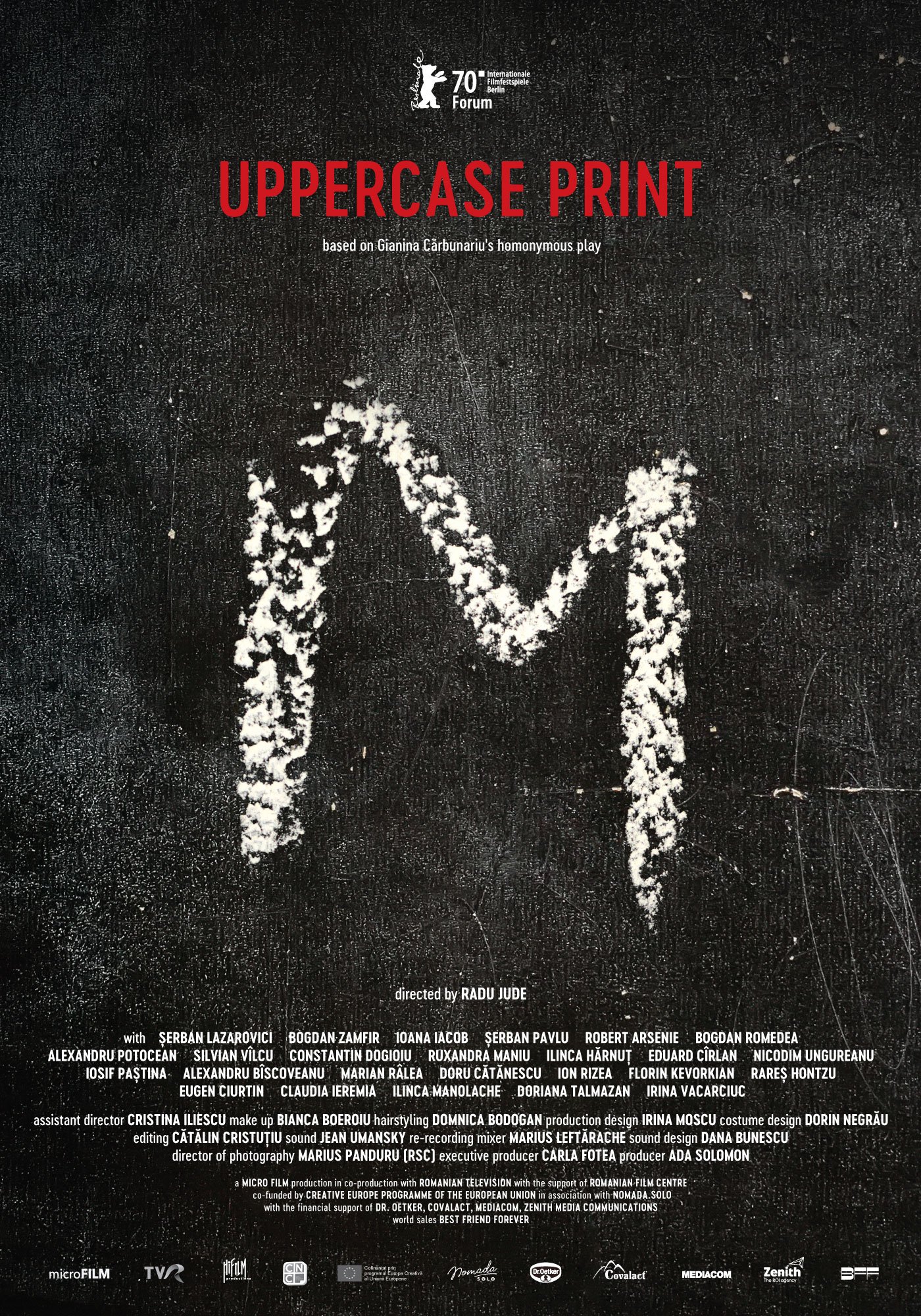
UPPERCASE PRINT
In 1981, chalk slogans written in uppercase letters started appearing in public spaces in the Romanian city of Botoşani. They demanded freedom, alluded to the democratic developments taking place in Romania's socialist sister countries or simply called for improvements in the food supply. The culprit was Mugur Călinescu, a teenager still in school whose case is documented in the files of the Romanian secret police. Theatre director Gianina Cărbunariu created a documentary play based on this material. Award-winning filmmaker Radu Jude (AFERIM!, BAD LUCK BANGING OR LOONY PORN) deftly adapts the play, skillfully adding archival footage from Romanian TV of the era. Cooking shows alternate with interrogations, transcripts of wiretapped phone calls with recommendations to exercise instead of taking sedatives. This dialectical montage creates a portrait of a dictatorial surveillance state, drawing on the authorized popular entertainment of the Ceaușescu regime in order to unmask it.

MOTHER, I AM SUFFOCATING. THIS IS MY LAST FILM ABOUT YOU.
A heartrending visual metaphor executed in brilliant black-and-white photography. This confrontational and soul-bearing cinematic essay examines the impact of colonialism, exploring themes of religion and longing. As we float through the streets of Lesotho, following a cross-bearing woman and an omnipresent figure wearing wings, a tumultuous history of sorrow and suffering between the motherland and its people unravels. The through line of symbolism pairs with the reading of a raw and affecting letter lamenting the loss of a home once known, in which every line is more acerbic than the last. Through potent imagery and poetic narration, filmmaker Lemohang Jeremiah Mosese grapples with exile from his native country and alienation in his newfound home in Germany.
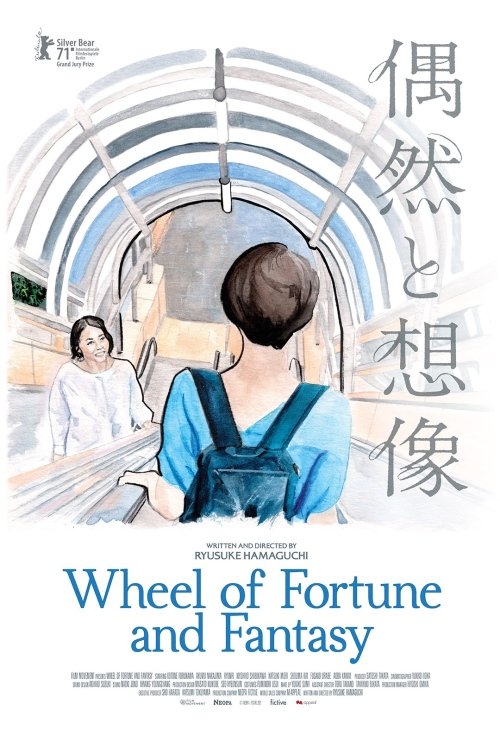
WHEEL OF FORTUNE AND FANTASY
An unexpected love triangle, a failed seduction, and a chance encounter with the past. Propelled by coincidence and imagination, and guided by love’s gentle current, acclaimed director Ryūsuke Hamaguchi (Happy Hour, Asako I & II) returns with an enchanting triptych that spins mundane encounters into a world of infinite possibilities. In Episode 1: Magic (or Something Less Assuring), a young woman is startled when she realizes that her best friend’s new flame might just be her ex; in Episode 2: Door Wide Open, a disgruntled student plots to trick his college professor, using his friend-with-benefits as bait; and in Episode 3: Once Again, a girl’s college reunion leads to an unanticipated run-in with an old friend, and awakens feelings long since forgotten. Playfully inspired by life’s tiny miracles, and bound together by memory, regret, deception, and fate, Hamaguchi leaves no stone unturned in his quest to chart the ever-deepening mysteries of the all-too-human heart.
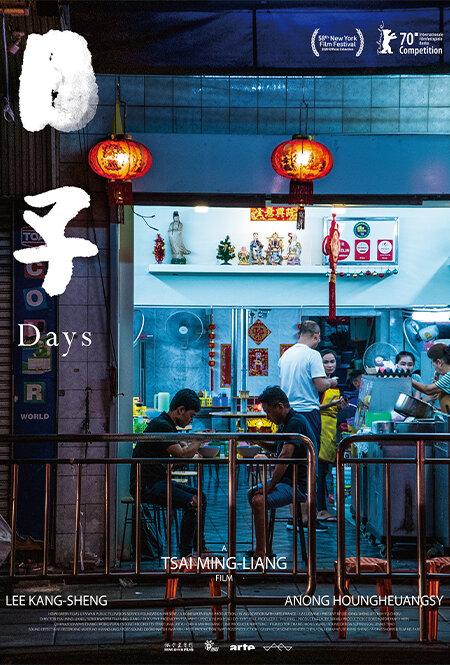
DAYS
Under the pain of illness and treatment, Kang finds himself adrift. He meets Non in a foreign land. They find consolation in each other before parting ways and carrying on with their days. The latest film from Tsai Ming-liang (Goodbye Dragon Inn, Stray Dogs), Days marks yet another masterwork in one of contemporary cinema’s most extraordinary careers.
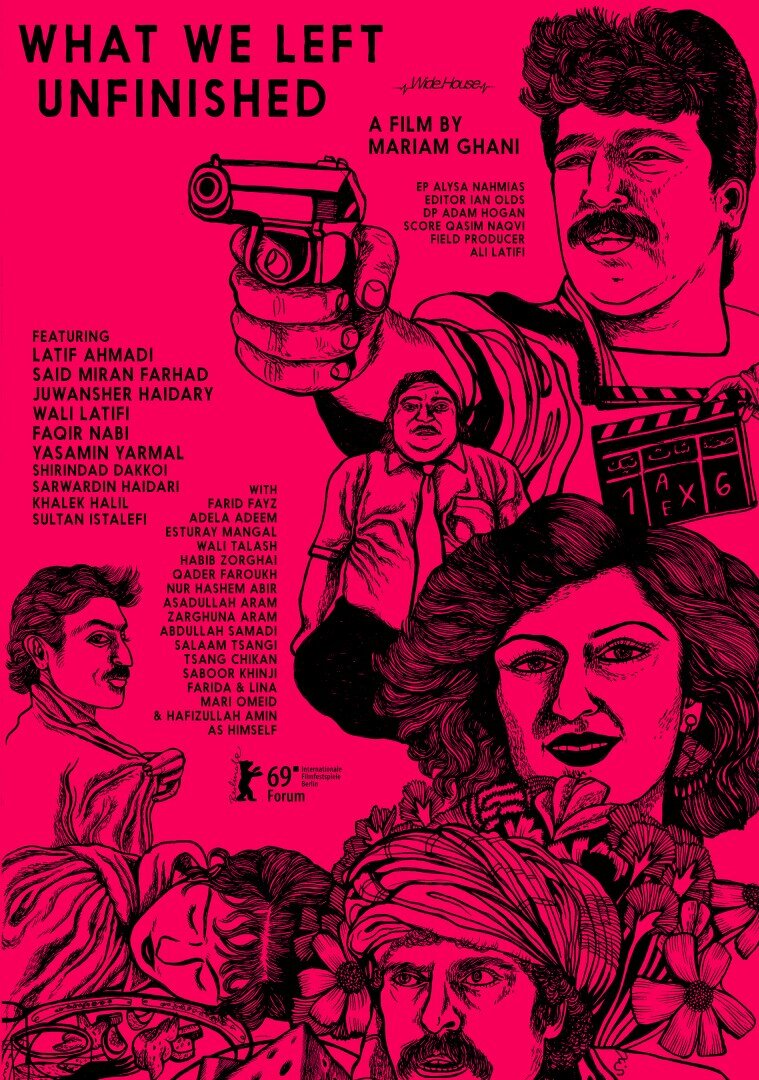
WHAT WE LEFT UNFINSIHED
Utterly unique in film history, Mariam Ghani's archival marvel WHAT WE LEFT UNFINISHED is a probing and engrossing case study in censorship, authoritarianism, and political art. Thirty years after the Soviet withdrawal from Afghanistan and the subsequent civil war, during a new era of political uncertainty for the embattled nation, WHAT WE LEFT UNFINISHED looks closely at the era of state-funded Afghan filmmaking during the country’s Communist era, bringing together dozens of writers, actors, and filmmakers to discuss five unfinished, unedited projects produced between 1978 and 1991.
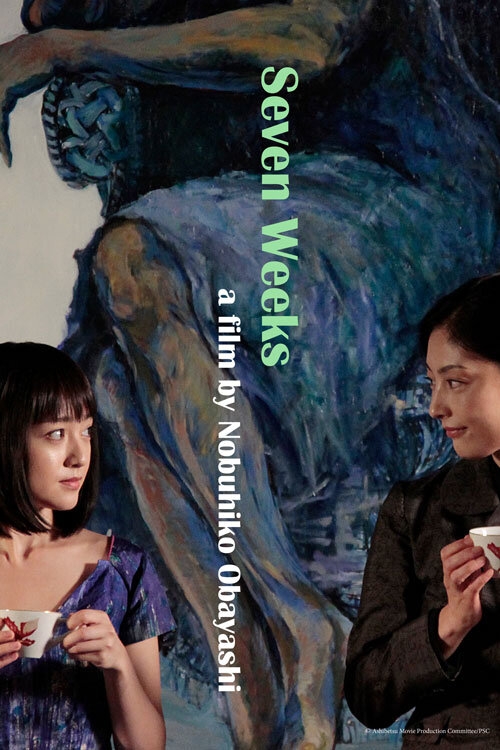
SEVEN WEEKS
At 2:46 PM on March 11, 2013 in Ashibetsu, Hokkaido Prefecture, Mitsuo Suzuki (Toru Shinagawa) takes his last breath at the ripe age of 92. As the patriarch’s far-flung family gathers to make preparations for his passing, a mysterious and unknown woman (Takako Tokiwa) appears among them. Together, they begin to unravel the secret history of Mitsuo’s long life, including shocking tales of war in Sakhalin (an island in the Japanese archipelago that is now a part of Russia). Ruthlessly fragmenting scenes and setting a furious pace with one experimental technique following another, Obayashi’s breathless film breaks down the barriers between past and present, reality and illusion, and even self and other, all in order to create an emotionally profound experience of loss and hope.
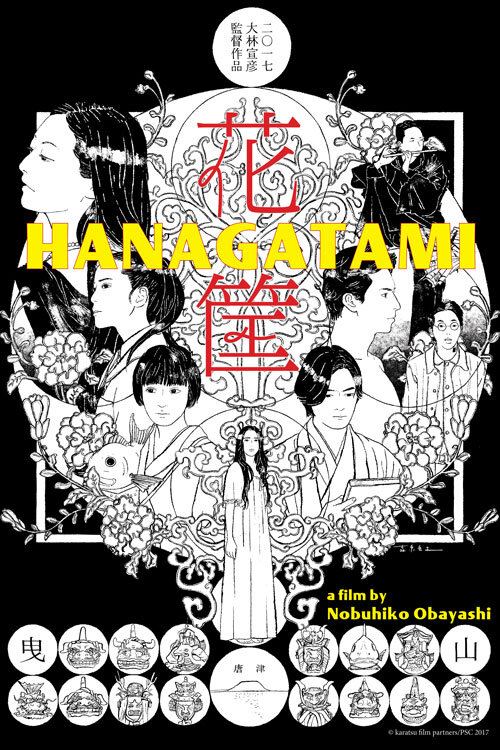
HANAGATAMI
In the spring of 1941, wide-eyed 17-year-old Toshihiko Sakakiyama (Shunsuke Kubozuka) arrives in the coastal town of Karatsu in Saga Prefecture and befriends a group of teenage classmates who fall in love, quarrel and stumble through their remaining days of youth as war looms on the horizon. An extravagantly stylized epic that makes the most of green screens, elaborate lighting and dizzying editing, Obayashi’s passion project and swan song is a grand culmination of the great director’s dazzling visual style and a poignant reminder of the tragedy of war for this generation. (Japan Society)
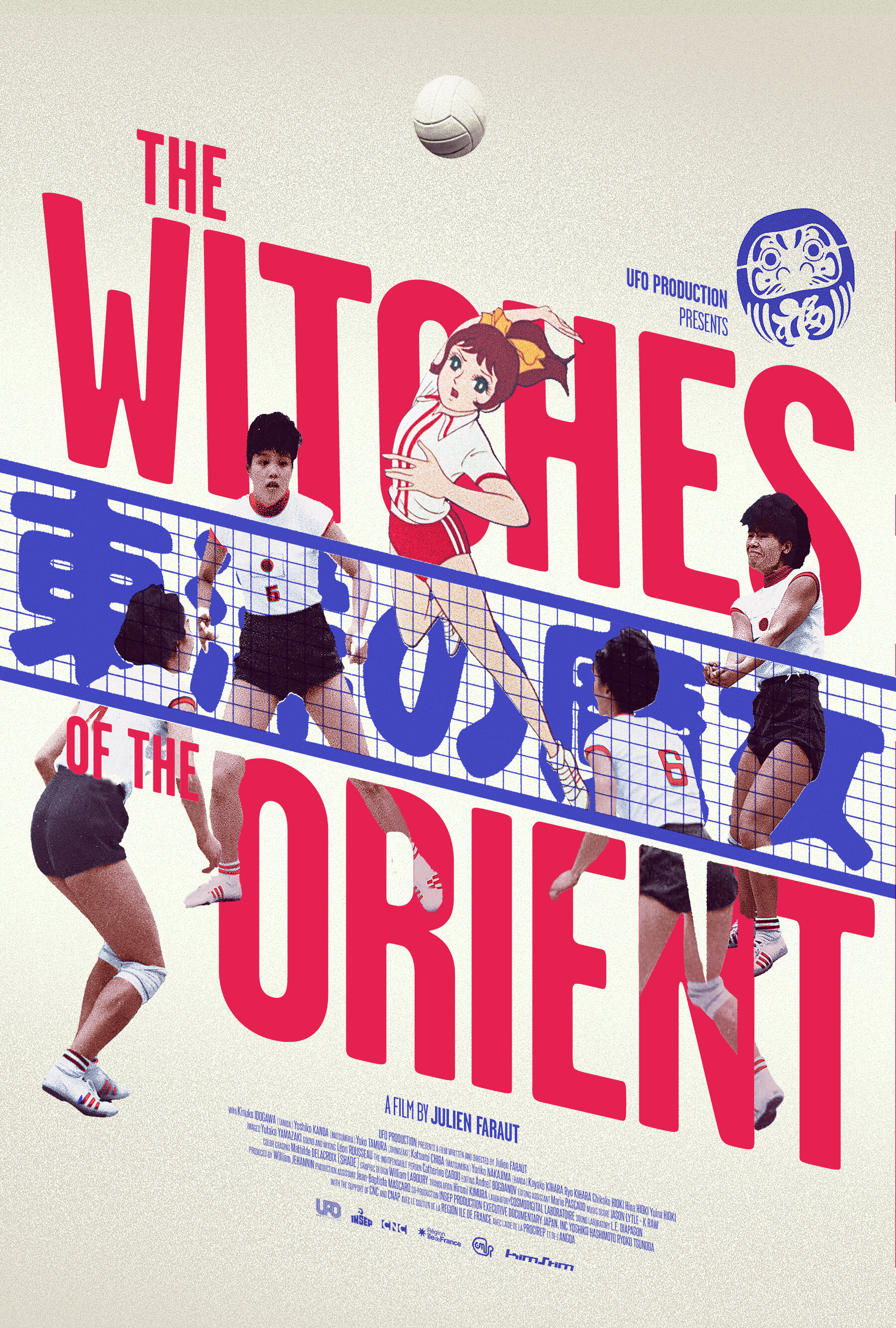
THE WITCHES OF THE ORIENT
How does a Japanese women’s volleyball team from the late 1950s become an international sensation, feminist role models, the subject of a wildly popular comic book, and a still-influential anime? This stranger-than-fiction story is dynamically told by Julien Faraut (JOHN McEnroe: IN THE REALM OF PERFECTION), with an ironic twist on the original demeaning moniker, Oriental Witches. A group of Osaka textile workers is transformed into a fiercely competitive volleyball team by their astonishingly ruthless coach whose unconventional techniques emphasize speed and aggression. A record-setting winning streak and a dramatic 1964 Tokyo Olympics triumph follow. Wonderful archival footage of the women in training and on the court, animated versions of their championship games, and moving interviews with the women today are set to a pulsating electronic score.- FILM FORUM
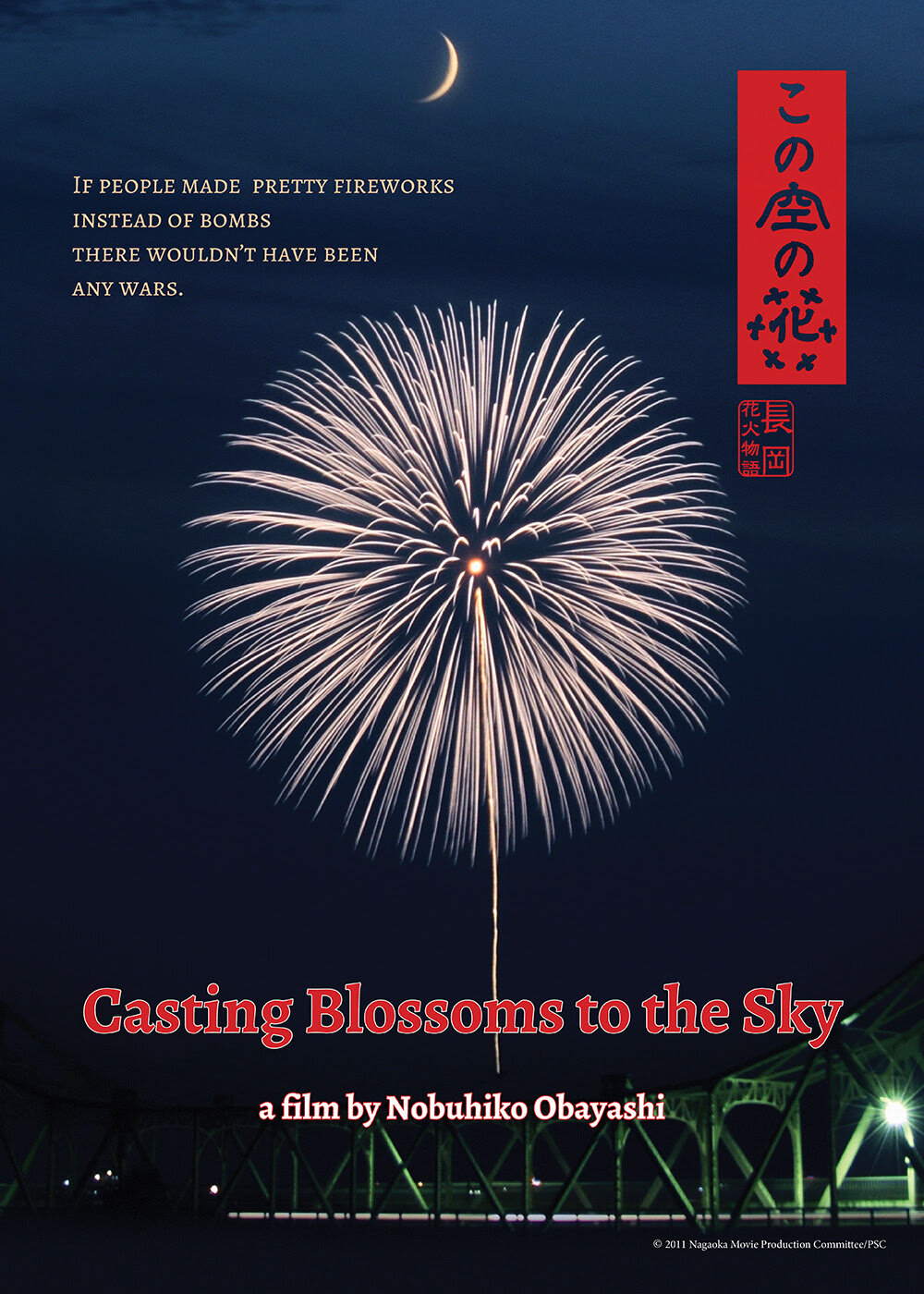
CASTING BLOSSOMS TO THE SKY
Nobuhiko Obayashi’s imaginative first entry in his war trilogy is a deeply moving work of mourning, compassion and hope that ultimately celebrates the resilience of humankind in the wake of debilitating catastrophe. Drawing parallels between war and the existential threats of modern disasters, Casting Blossoms to the Sky is a film dedicated to “the children of the future from adults who lived the past.” (Japan Society)
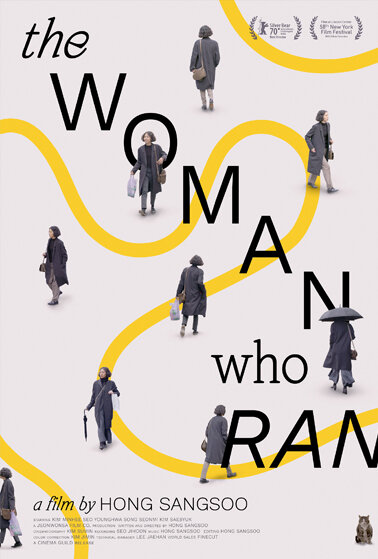
THE WOMAN WHO RAN
The 24th feature from Hong Sangsoo, THE WOMAN WHO RAN follows Gamhee (Kim Minhee), who has three separate encounters with friends while her husband is on a business trip. Youngsoon (Seo Youngwha) is divorced, has given up meat and likes to garden in her backyard. Suyoung (Song Seonmi) has a crush on her architect neighbor and is being hounded by a young poet she met at the bar. Woojin (Kim Saebyuk) works for a movie theater. Their meeting is polite, but strained. Before long, their shared history bubbles to the surface.
With characteristic humor and grace, Hong takes a simple premise and spins a web of interconnecting philosophies and coincidences. THE WOMAN WHO RAN is a subtle, powerful look at dramas small and large faced by women everywhere.

TAKE ME SOMEWHERE NICE
Recipient of the Special Jury Prize at the Rotterdam Film Festival, Take Me Somewhere Nice is the unpredictable, neon-tinted feature debut for Ena Sendijarević, a Bosnian-born refugee raised in Holland who is now one of Dutch cinema’s fastest rising talents. Her film’s breezy wit and pastel color palette disguise dark truths about national identity, gender, and coming-of-age, making it the first essential road movie about the TikTok generation.
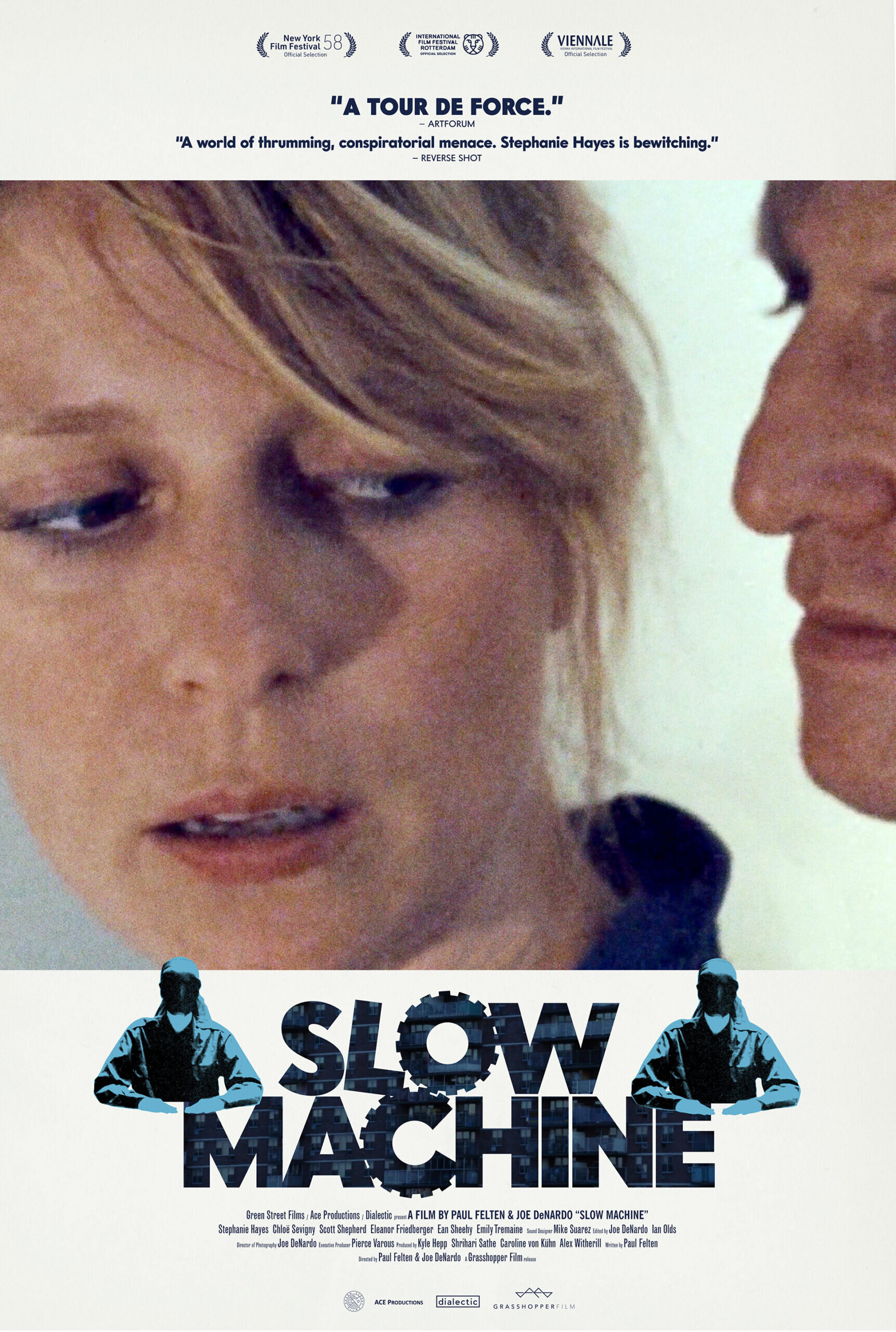
SLOW MACHINE
Stephanie, a restless and vibrant actress, meets Gerard, an NYPD counter-terrorism specialist who’s an aficionado of experimental theater (and maybe out of his mind). Flirtation ensues, ends disastrously, and forces Stephanie to the ramshackle upstate home of musician Eleanor Friedberger, yet this supposed escape is infected by violent memories of her past life. Directed by Paul Felten and Joe DeNardo, and starring Stephanie Hayes, Chloë Sevigny, Scott Shepherd and Eleanor Friedberger, Slow Machine is a miniature epic of paranoia, espionage, subterfuge, music, and performance captured on lush and invigorating 16mm.
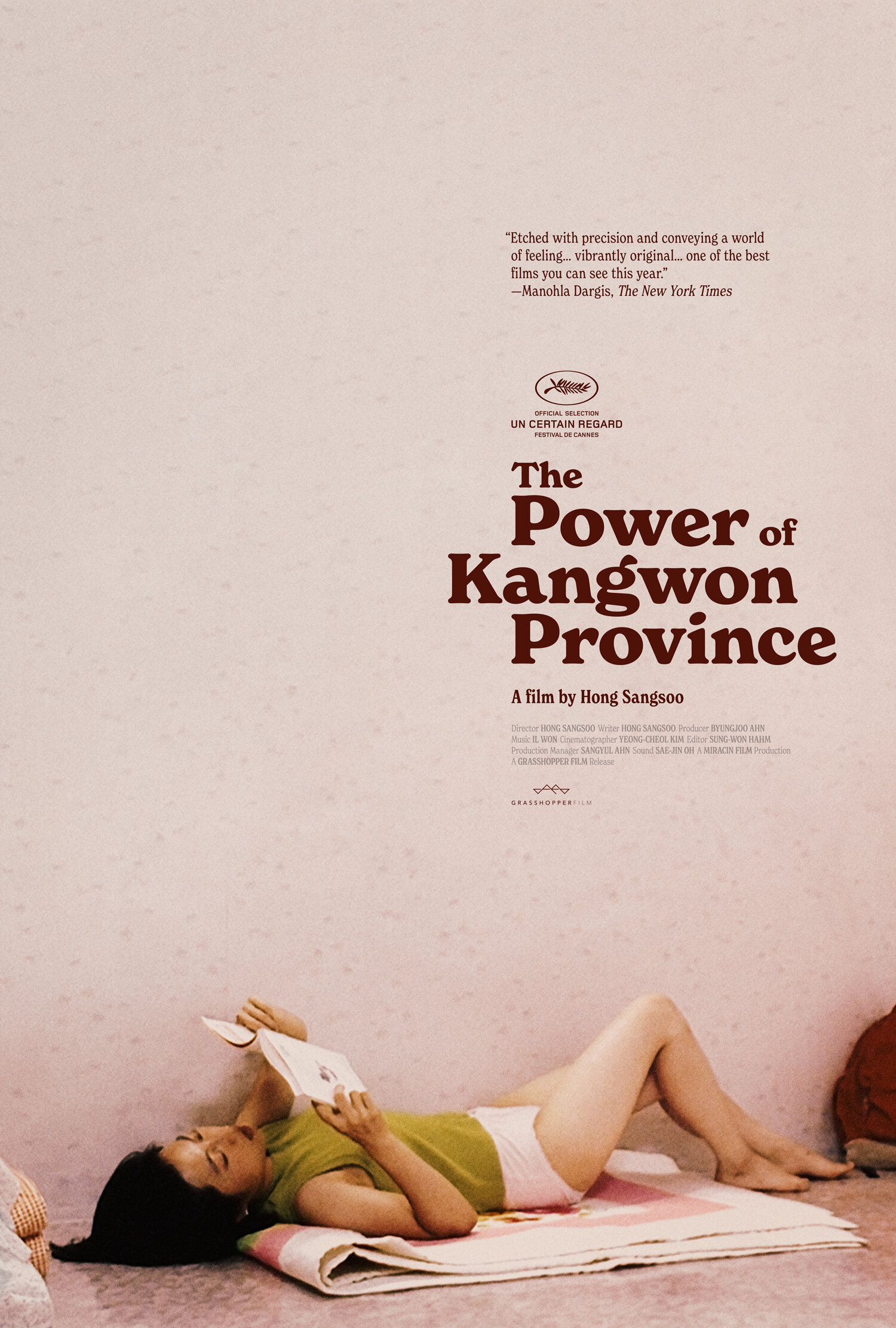
THE POWER OF KANGWON PROVINCE
In only his second film, Hong Sangsoo was conducting stunning structural experiments. In the film’s first part, Jisook, recently free of a relationship with a married man, joins two girlfriends for a vacation in Kangwon, a mountainous region near Seoul in South Korea’s northeast, and quickly starts to make the same mistakes all over again, tumbling into bed with a married policeman after a sloppy drinking party. In the latter section, we catch up with Jisook’s ex-, Sangwon, who happens to be visiting Kangwon at the same time, threatening to cross Jisook’s path.

DEAD PIGS
The fates of an unlucky pig farmer, a feisty home-owner defending her property, a lovestruck busboy, a disenchanted rich girl, and an American expat pursuing the Chinese Dream converge and collide as thousands of dead pigs are found floating down the Huangpu River, towards a modernizing Shanghai in Cathy Yan's (BIRDS OF PREY) debut feature.

TWO LOTTERY TICKETS
The next generation of Romanian filmmaking talent finally arrives in the U.S. with Paul Negoescu and Two Lottery Tickets. A buddy comedy produced on a shoestring budget, starring three of the most recognizable faces in Romanian movies, Two Lottery Tickets suggests Pineapple Express by way of Abbas Kiarostami.
A winsome, riotous comedy of errors, Negoescu’s second feature is an audience-friendly social satire which merges a stoner’s shaggy-dog story with the sophisticated, intensely realistic style that has made the Romania cinema one of the most popular national film movements in the world.
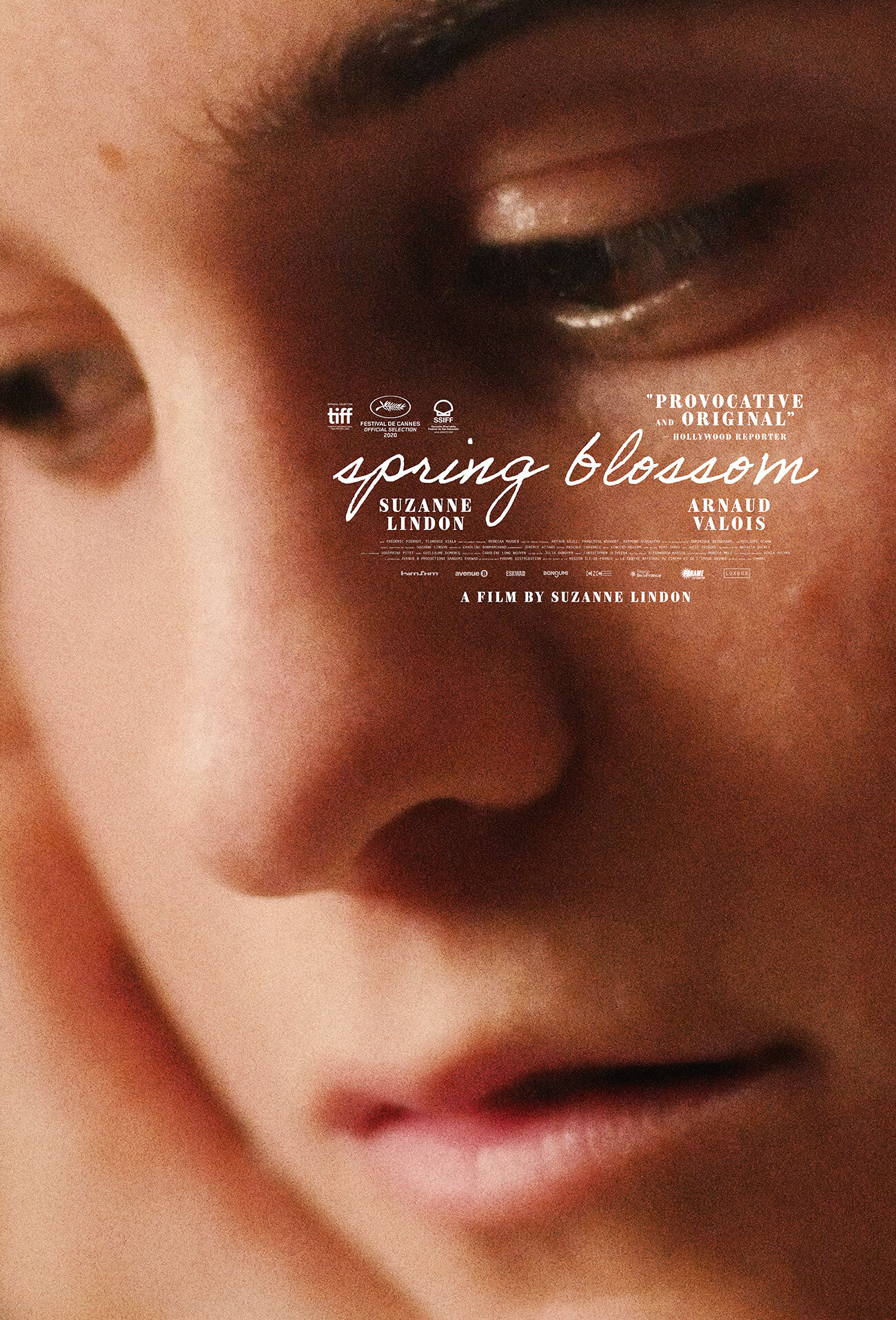
SPRING BLOSSOM
Suzanne is 16. She is bored with people of her age. Every day on her way to high school, she passes a theater. There, she meets an older man, and becomes obsessed with him. Despite their age difference, they find in each other an answer to their ennui and fall in love. But Suzanne is afraid she’s missing out on life – that life of a 16-year-old, which she had struggled so much to enjoy in the same way as her peers.

DOWNSTREAM TO KINSHASA
Over six bloody days in June 2000, the Congolese city of Kisangani was the scene of deadly violence between the Ugandan and Rwandan armies. More than 10,000 shells exploded, killing thousands and injuring thousands more. Since then, victims of the Six-Day War have fought for recognition and compensation. Uganda has been found guilty of war crimes by the International Court of Justice, but the victims remain uncompensated decades later. Now, they decide to take matters into their own hands. In the first Congolese film to be an official selection Cannes Film Festival, and his country's national submission to the Academy Awards, acclaimed director Dieudo Hamadi captures their long journey down the Congo River to voice their claims in capital city of Kinshasa, seeking justice at last.

ABOUT ENDLESSNESS
ABOUT ENDLESSNESS is a reflection on human life in all its beauty and cruelty, its splendor and banality. We wander, dreamlike, gently guided by our Scheherazade-esque narrator. Inconsequential moments take on the same significance as historical events: a couple floats over a war-torn Cologne; on the way to a birthday party, a father stops to tie his daughter’s shoelaces in the pouring rain; teenage girls dance outside a cafe; a defeated army marches to a prisoner-of-war camp. Simultaneously an ode and a lament, ABOUT ENDLESSNESS presents a kaleidoscope of all that is eternally human, an infinite story of the vulnerability of existence.
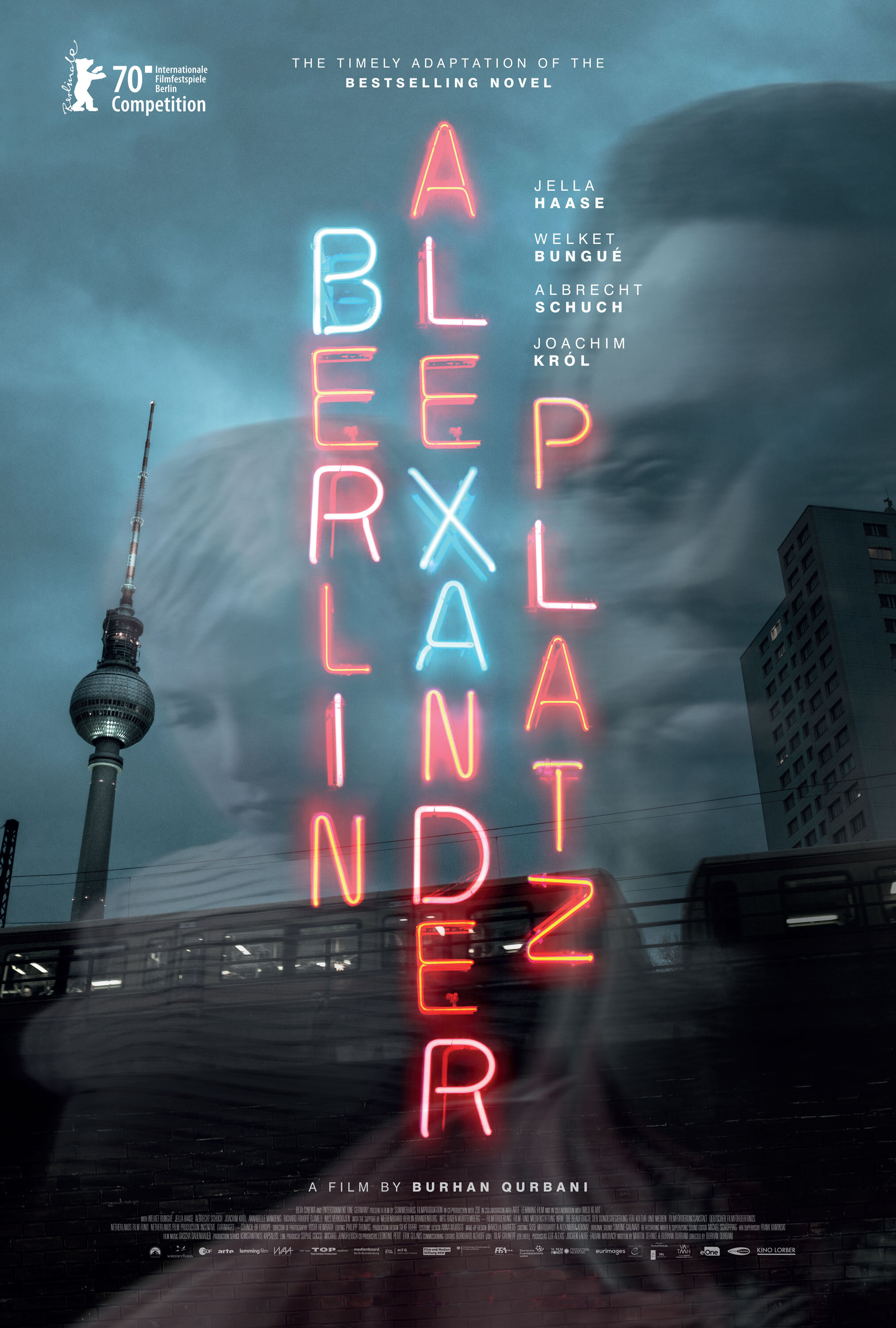
BERLIN ALEXANDERPLATZ
An African immigrant struggles to make a new life for himself in the big city in director-co-writer Burhan Qurbani's (We Are Young. We Are Strong.) audacious, neon-lit reinterpretation of Alfred Döblin's 1929 novel. After surviving his perilous journey, Francis vows to be a good man, but he soon realizes how difficult it is to be righteous while undocumented in Germany – without papers, without a nationality, and without a work permit. When he receives an enticing offer for easy money from the psychopathic gangster Reinhold (Albrecht Schuch), Francis initially resists temptation, but eventually he is sucked into Berlin's underworld and his life spirals out of control. – Alissa Simon

MINARI
A tender and sweeping story about what roots us, Minari follows a Korean-American family that moves to an Arkansas farm in search of their own American Dream. The family home changes completely with the arrival of their sly, foul-mouthed, but incredibly loving grandmother. Amidst the instability and challenges of this new life in the rugged Ozarks, Minari shows the undeniable resilience of family and what really makes a home.

BILL TRAYLOR: CHASING GHOSTS
This illuminating documentary explores the life of a unique American artist, a man with a remarkable and unlikely biography. Bill Traylor was born into slavery in 1853 on a cotton plantation in rural Alabama. After the Civil War, Traylor continued to farm the land as a sharecropper until the late 1920s. Aging and alone, he moved to Montgomery and worked odd jobs in the thriving segregated black neighborhood. A decade later, in his late 80s, Traylor became homeless and started to draw and paint, both memories from plantation days and scenes of a radically changing urban culture.
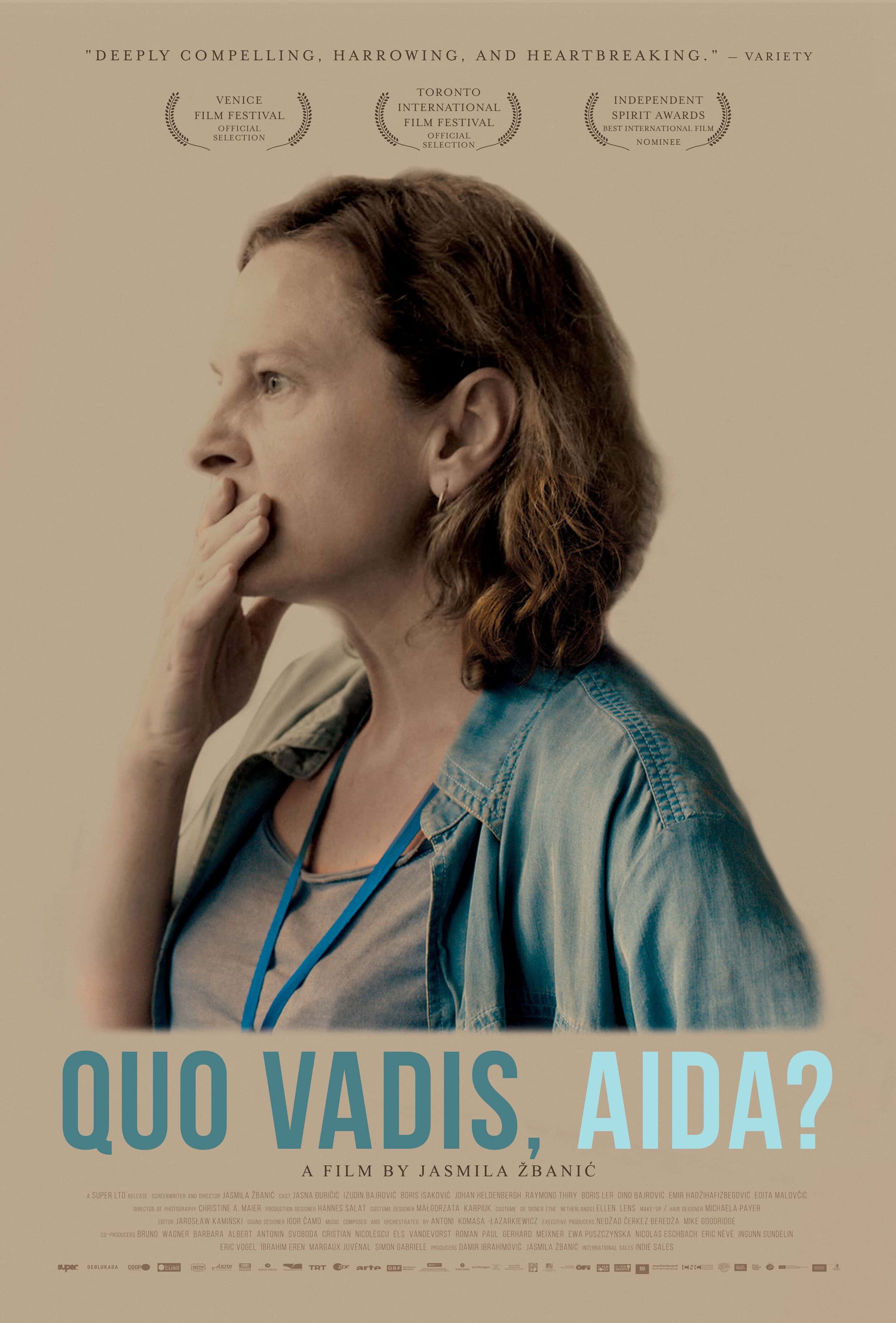
QUO VADIS, AIDA?
Aida is a translator for the UN in the small town of Srebrenica. When the Serbian army takes over the town, her family is among the thousands of citizens looking for shelter in the UN camp. As an insider to the negotiations, Aida has access to crucial information that she needs to interpret. What is on the horizon for her family and people - rescue or death? Which move should she take?
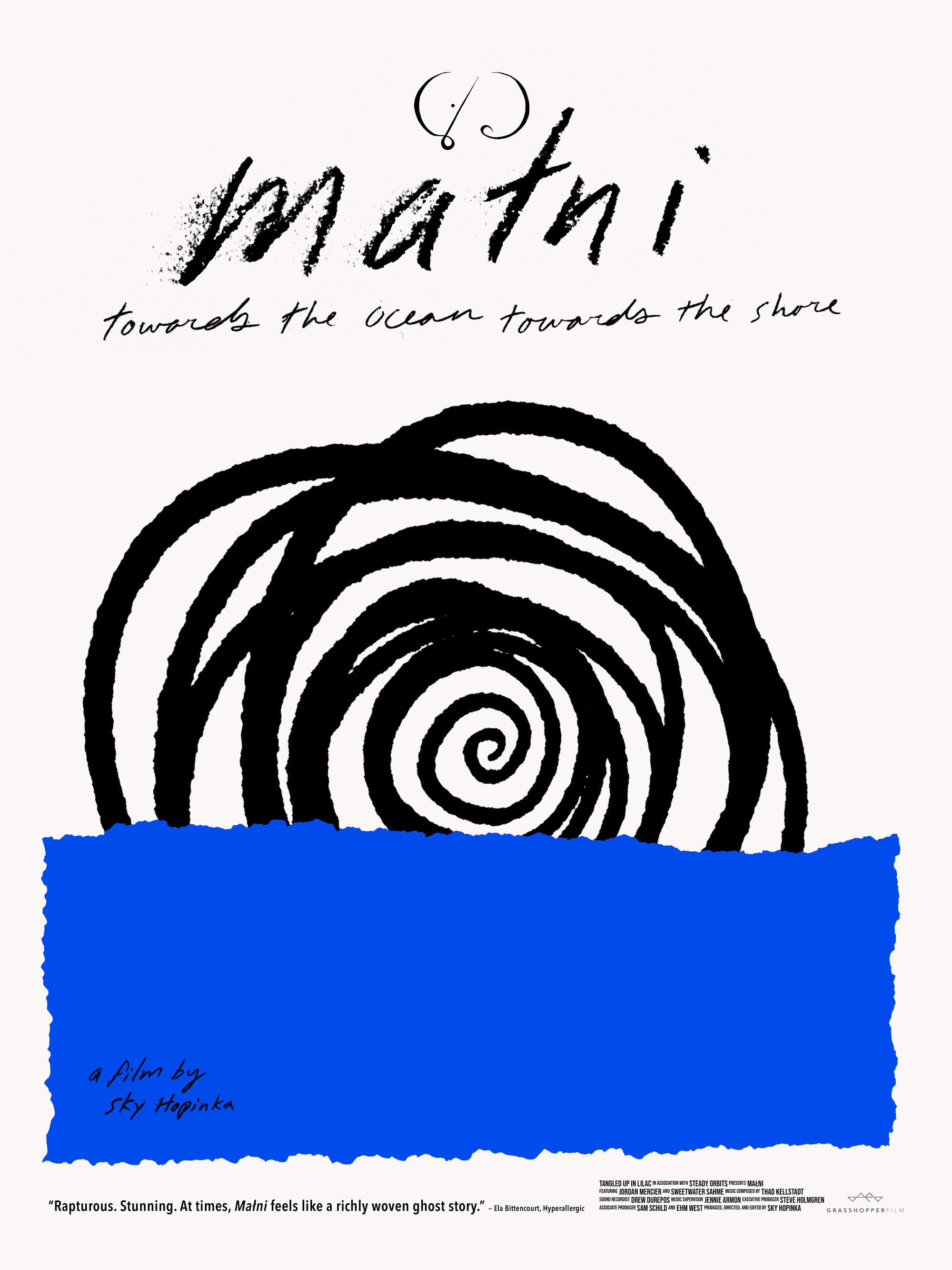
Małni—Towards the Ocean, Towards the Shore
A poetic, experimental debut feature circling the origin of the death myth from the Chinookan people in the Pacific Northwest, małni – towards the ocean, towards the shore follows two people as they wander through their surrounding nature, the spirit world, and something much deeper inside. At its center are Sweetwater Sahme and Jordan Mercier, who take separate paths contemplating their afterlife, rebirth, and death. Probing questions about humanity’s place on earth and other worlds, Sky Hopkina’s film will have audiences thinking (and dreaming) about it long after.

THE MAN WHO SOLD HIS SKIN
Sam Ali, a young, sensitive and impulsive Syrian, left his country for Lebanon to escape the war. To be able to travel to Europe and live with the love of his life, he accepts to have his back tattooed by one of the World’s most sulfurous contemporary artist. Turning his own body into a prestigious piece of art, Sam will however come to realize that his decision might actually mean anything but freedom.

NINA WU
After toiling for years in bit-parts, aspiring actress Nina Wu (Ke-Xi Wu, who also co-wrote the script based on her own personal experiences) finally gets her big break with a leading role in a spy thriller set in the 1960s. The part, which calls for nudity and explicit sex scenes, is made all the more challenging thanks to the director’s unending belittlements. While seemingly on the brink of professional triumph, Nina’s psychological resolve begins to crack under the pressure. As she rushes to her childhood home following a family emergency, Nina begins suffering paranoid fantasies that a mysterious woman is stalking and attacking her. As Nina clings to memories of happier times, it seems that there is one crucial memory that she is repressing…